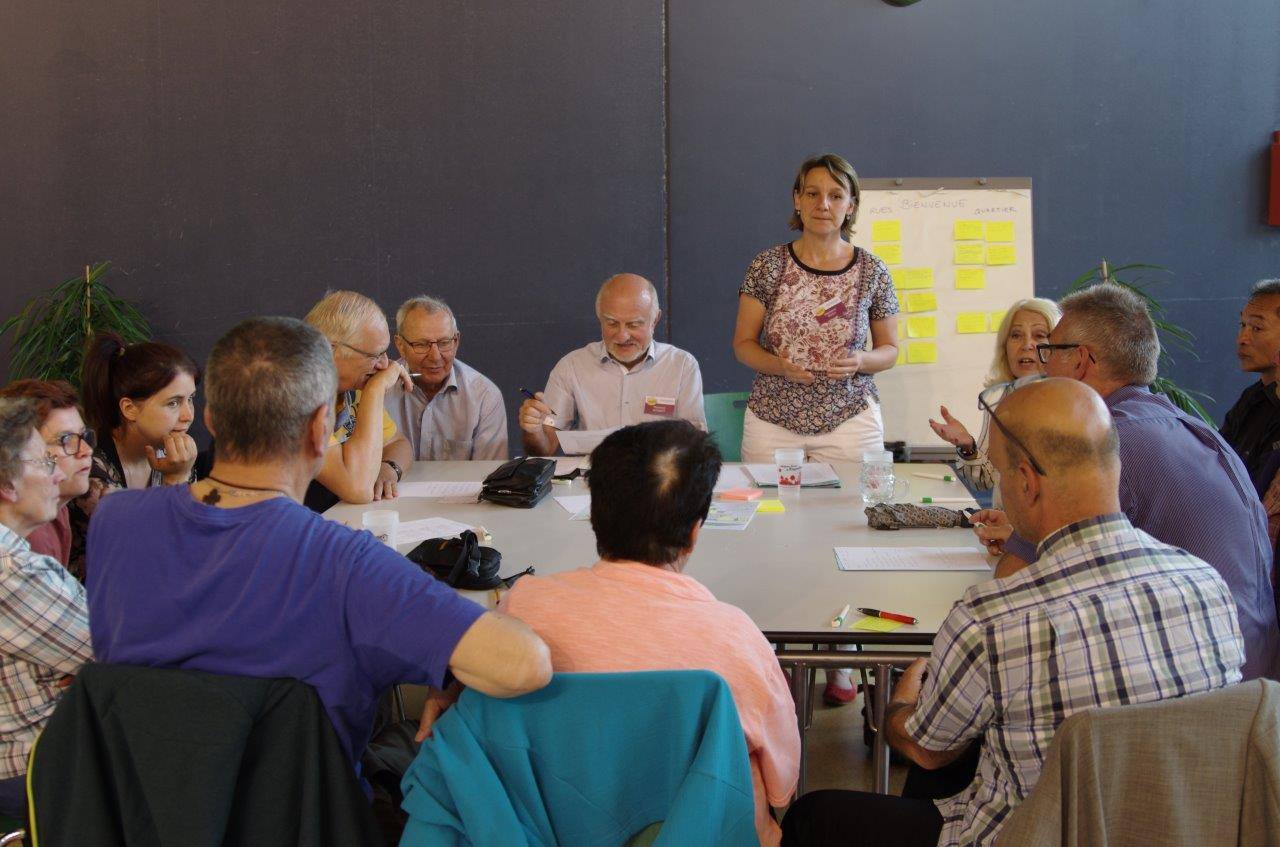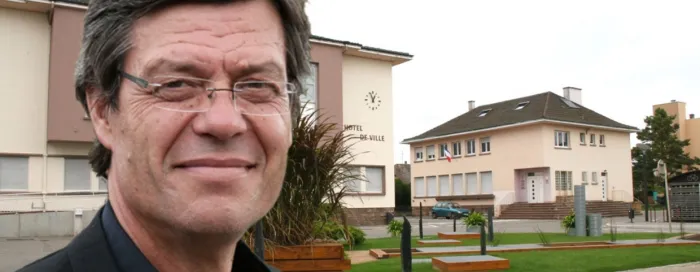This interview is part of our series “#ProgressiveLocalStories”, aiming at raising awareness on the many positive initiatives implemented by progressive cities and regions in Europe in relation to the Sustainable Development Goals. Cities and regions have become laboratories for innovative solutions and with this series we aim at discovering how progressive mayors, councillors, and presidents of regions put in place policies to tackle the climate crisis, eradicate social inequalities, and build more sustainable communities.
Jo Spiegel, you have been mayor of Kingersheim (France) since 1989. How have you implemented a progressive agenda for your city and responded to social and climate challenges? How is Kingersheim now a progressive city and a model for other European cities?
All public policies since 1989 have been inspired by three priorities.
The first is the primacy of the human dimension: the place of the child in the city, the agreed educational space, culture with CREA [a tool for social integration through culture], the Momix Festival [a model festival in youth public performance with a programme that defends humanist values and questions the spectator as an active citizen] and solidarity activities (such as the social and solidarity grocery, the eco-fab “LeFALA - Le Faire Avec Les Autres” which means “making it with others”, and so on).
The second priority is the ecological transition, first promoted by “Agenda 21” (signed in 2003) and by the Territorial Energy Climate Plan (since 2007) at inter-municipal level. The challenge is to mobilise all actors in the area, with each of them taking on its own role: elected representatives, citizens and organisations. The municipalities are implementing, according to their competences, the project for the region. As a result, street lighting in Kingersheim has been changed entirely to LED and the refurbished roof of the multipurpose hall is now home to photovoltaic panels installed in partnership with “Energies Partagées”. The forest at the heart of the city is classified as a protected area. The city has supported an eco-citizens’ association in transforming a municipal industrial building into an organic restaurant-concert hall-shop and has provided it with municipal land for permaculture. Municipal officials practise “zéro phyto” (for the reduction and elimination of pesticides). An old landfill is in the process of conversion to a photovoltaic field that could supply electricity for the equivalent of 2 500 households.
The third priority is the democratic transition. I would like to stress this point in particular. My last book “Et si on prenait enfin les électeurs au sérieux ! [What if voters were finally taken seriously!]” – goes into this in more detail. Having been aware for twenty years of the democratic crisis that is taking place in our country and in Europe, we have tried in the local “laboratory” of our municipality to make the transition between a “providential democracy” (“Just take a nap, voters, we’ll decide for you”) that is passive, anaesthetising, top-down and very often infantilising and what I call “democracy building”, a type of democracy that is continuous, real, effective, demanding and interactive throughout the entire term of office and that at all times is forging the transition from “I” to “We”. There are six structural elements identifying this ecosystem. A place, with the construction of the “Maison de la Citoyenneté [House of Citizenship]”. A principle: there is no project, question or call for a petition which is not subject to a democratic process. A tool: participatory councils that for all projects bring together all resources of thought, intelligence and expertise. These participatory councils are at the decisive stage of co-building what the municipal council is at the decision-making stage. Both phases are essential. High-profile events, such as the Olympic Games of participation to encourage a desire to participate among the inhabitants. The will, thanks to the Fonds d’Initiatives Citoyennes (FIC) [Funds for citizen initiatives], to support inhabitants’ the “power to act” , which are something of a precursor to participatory budgets. A state of mind: a humble attitude to power. Ribbon-cutting and official openings are replaced by a citizens’ “time to take over”.
How in tangible terms are the Sustainable Development Goals (SDGs) implemented in your city, especially in the field of ecological transition and participatory democracy? How can the climate challenge be addressed without neglecting social inequalities?
To keep it short, I will just address the policy of sustainable development and prioritise what I consider to be essential: the conditions for success and the democratic imperative for the ecological transition.
The conditions for success:
- the primacy of the direction to take and the application of the ethics of liability
- the inclusion of the Climate Plan in the particular history of each territory
- the relevant perimeter of the conurbation authority, on the condition that it covers the residents' living area where the necessary transformative decisions take place (housing, economy, urban planning, waste, mobility, energy and heating networks, etc.)
- the need for a project approach with diagnosis, indicators, reporting, transversality, setting measurable operational objectives, etc.
- the need for a democracy based on participation and involvement. This is what we have done in a number of congresses and meetings.

The mobilisation of the area. To do this, we have applied to the Climate Plan our Kingersheim democratic grammar:
- share the direction to take at all times
- stimulate the debate; more than a thousand people took part in the Climate Plan Agora
- the creation of an inter-municipal participatory council, where organisations that previously ignored one another or clashed were brought together for one year, together with volunteer citizens selected by lot and elected representatives of all views, to form different points of view for “dynamic compromises”.
- engage everyone in this process: “I do, you do, we do”
In 12 years, an Olympic Game on the Climate Plan after another, the Mulhouse Alsace Agglomération achieved 36% reduction of greenhouse gases production, 17% reduction of energy consumption and an increase by 26% in the use of renewables.
Europe will have to write a new narrative if it is to be bolder and radically tackle the climate crisis and social justice.
Does Europe contribute to making Kingersheim a more sustainable city? How could the EU better help Europe’s cities in the implementation of the SDGs?
My answer will be brief and direct. The progressive camp must adopt the call made by Pierre Larouturou and supported, among others, by the party of which I am co-president, Place Publique. This is the “European Finance-Climate Pact”, calling for a treaty, a referendum, a sustainable development bank and a climate budget. Europe’s regions and cities, which are laboratories for transformation, need a green, social and democratic Europe.
Jo Spiegel has been mayor of Kingersheim (France) since 1989. He is co-president of Place Publique, a political movement that he co-founded in 2018.
***
Photo credit: Municipality of Kingersheim website.
